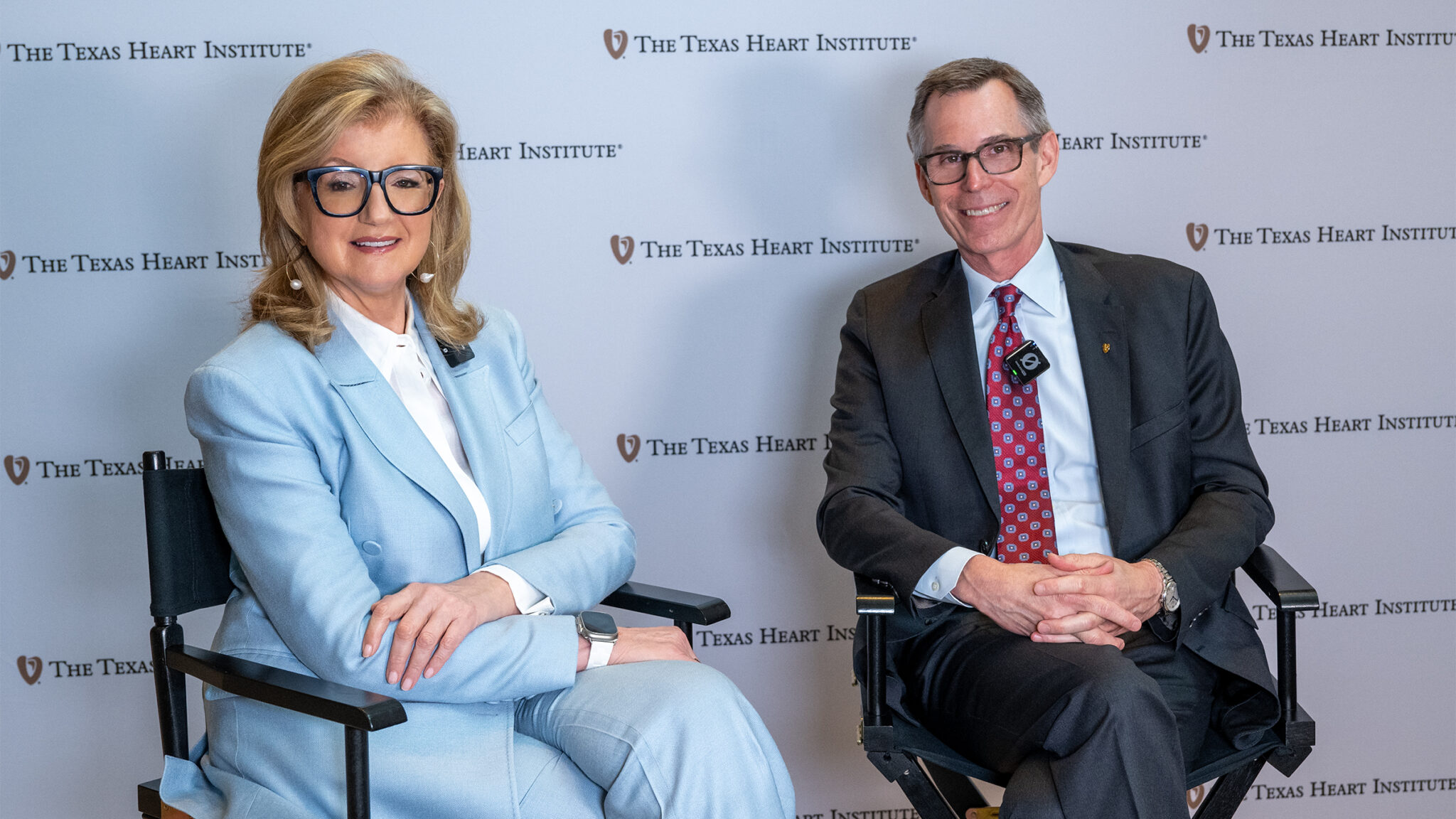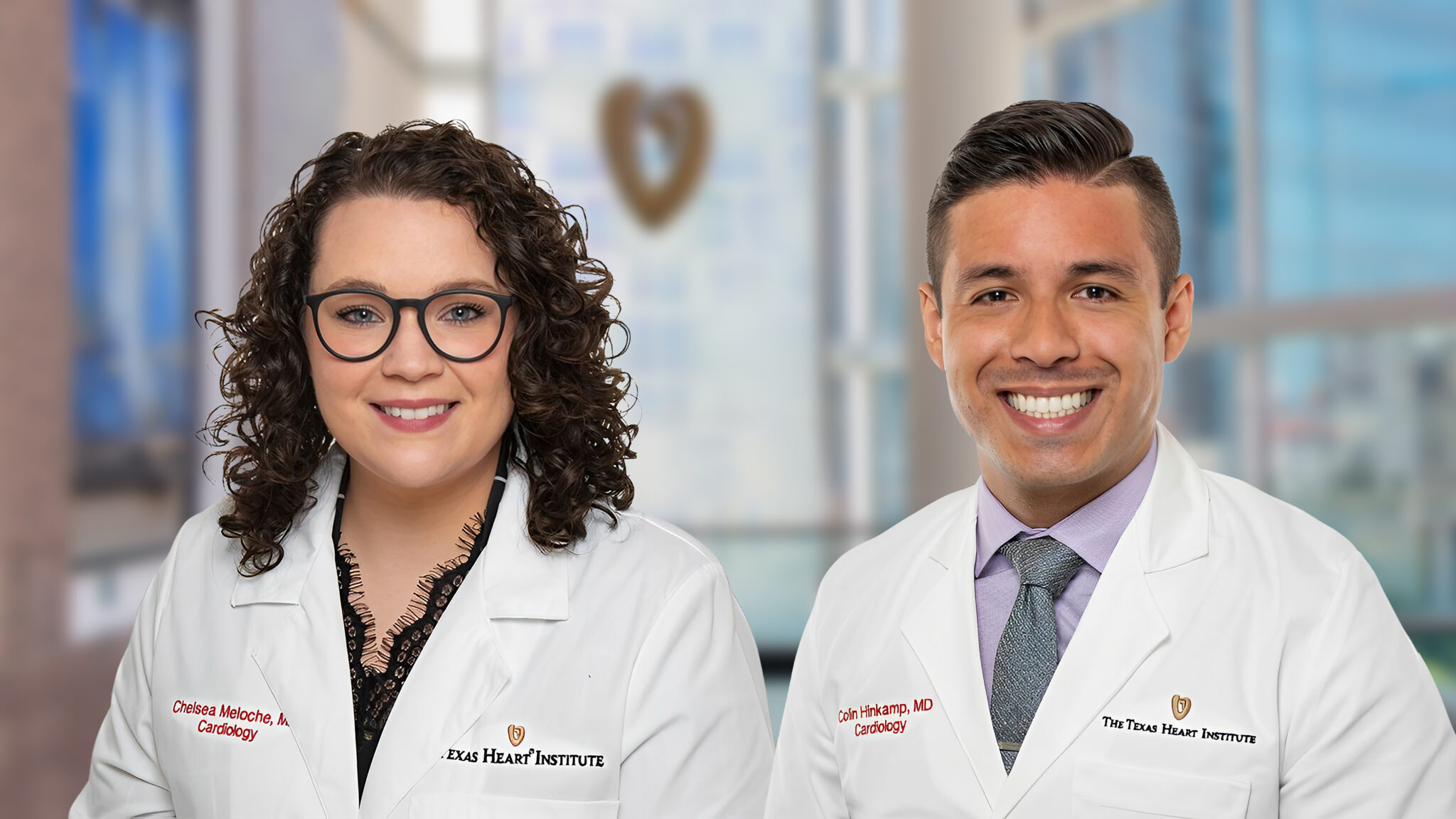
Dr. Salim Virani is an alumnus of The Texas Heart Institute, a member of The Texas Heart Institute Professional Staff, and the first Vice Provost for Research at Aga Khan University. He is a world expert in cholesterol, among the top 0.01% of scholars writing about cholesterol from 2011-2021 and among the top 2% of the most cited scientists worldwide by PLos Biology in 2022. Dr. Virani has served as a faculty for over 50 online literary and educational programs and has participated in more than 100 online or in-person media interviews.
Dr. Virani’s research portfolio aims to understand the pathophysiology and epidemiology of atherosclerosis with a particular emphasis on South Asians. His team is studying several domains in delivering high-quality guidelines concordant with preventive care for primary and secondary cardiovascular disease. Via funded research grants from the Department of Veterans Affairs, American Diabetes Association, American Heart Association, NIH, AHRQ, and the World Heart Federation, his team has been evaluating models of delivery of cardiovascular disease preventive care, how to leverage machine learning while using “big data,” and how point-of-care informatics driven interventions can improve guideline-concordant care delivery. His team is also evaluating how best to leverage technology to deliver high-quality care in Low-Middle Income Countries, especially in South Asia.
Show full bioSalim S. Virani, MD, Ph.D., is a tenured Professor in the Sections of Cardiology and Cardiovascular Research at Baylor College of Medicine in Houston, Texas. He is also an investigator in the Health Policy, Quality, and Informatics Program at the Michael E. DeBakey VA Medical Center (MEDVAMC) Health Services Research and Development Center of Innovation in Houston, TX. His clinical practice includes being a Preventive Cardiologist with a special emphasis on management of complex dyslipidemias. He also serves as the Director for the Cardiovascular Disease Fellowship Training Program at Baylor College of Medicine. Dr. Virani earned his medical degree from the Aga Khan University in Pakistan, graduating with the Best Medical Graduate Award. Dr. Virani completed a residency in Internal Medicine at the University of Miami, there receiving an award as the Best Resident. He then completed a Cardiology fellowship at the Texas Heart Institute, where he served as the Chief Cardiology Fellow and received Tauber Award for the Outstanding Graduating Fellow.
Dr. Virani’s research portfolio aims to understand the pathophysiology and epidemiology of atherosclerosis with a special emphasis on South Asians. His team is studying several domains in the delivery of high-quality guideline concordant primary and secondary cardiovascular disease preventive care. Via funded research grants from the Department of Veterans Affairs, American Diabetes Association, American Heart Association, NIH, AHRQ, and the World Heart Federation, his team has been evaluating models of delivery of cardiovascular disease preventive care, how to leverage machine learning while using “big data”, and how point-of-care informatics driven interventions can improve guideline-concordant care delivery.
His team is also evaluating how best to leverage technology to deliver high-quality care in Low-Middle Income Countries especially in South Asia. He has authored or co-authored >600 peer-reviewed publications or book chapters (several with his mentees) related to various aspects of cardiovascular disease prevention including cholesterol, blood pressure control and aspirin therapy with several in high-impact journals such as New England Journal of Medicine, Circulation, European Heart Journal, JAMA, JAMA Cardiology, and Journal of the American College of Cardiology. This work has received >115,000 citations. He has been recognized as “World Expert” in Cholesterol by Expertscape (top 0.01% of scholars writing about cholesterol from 2011-2021 among 181,887 published authors) and among the top 2% of the most cited scientists worldwide by PLos Biology in 2022. Dr. Virani has also served as a faculty for >50 online literary educational programs and has participated in >100 online or in person media interviews. He has made ~300 invited presentations at various conferences and academic institutions with >75 of those at institutions and conferences outside the U.S.
Dr. Virani has been a recipient of the Scott Grundy Award for Excellence in Lipids Metabolism Research from the American Heart Association (AHA), the Jeremiah Stamler Distinguished Young Investigator Research Award, Leadership Award from the American College of Cardiology (ACC) NCDR® Oversight Committee, National Lipid Association (NLA) President’s Service Award, and the Clark Faculty Service Award at Baylor College of Medicine for exemplary professionalism and community service.
Dr. Virani serves as the Chair for the ACC’s Global NCD Academy and the ACC International’s Global Quality Solutions Work group. He also serves as an At-Large Board Member for the Southwest Chapter of the NLA and as a member on the ACC’s Science and Quality Committee. In the recent past, he served as the Chair for the AHA’s Cardiovascular Disease Statistics Committee, Prevention of Cardiovascular Disease Section of the ACC, and the Research and Publications Committee of the ACC’s PINNACLE Registry (the largest outpatient cardiovascular disease registry in the world).
He has also served on the Board of Directors for the American Society of Preventive Cardiology, as the Associate Editor for Innovations for ACC.org, and the digital Strategy lead for the cardiovascular disease prevention related content for ACC.org. He has been inducted several times in the Best Doctors® Database (peer-reviewed group that includes the top 5% of U.S. physicians).
Dr. Virani has served as a panel member for the 2018 AHA/ACC Multi-society Guideline on Cholesterol Management, the 2019 ACC/AHA Guideline for the Prevention of Cardiovascular Disease, and the 2019 World Heart Federation and International Diabetes Federation’s Road Map on the Prevention of Cardiovascular Disease among People Living with Diabetes. More recently, he served as Co-Chair for the National Lipid Association’s Global think tank on Lipoprotein(a).
Currently, he is serving as a member of the writing group on the World Heart Federation’s Road Map on Cholesterol Management and the European Atherosclerosis Society’s Consensus statement on Lipoprotein(a).
Dr. Virani firmly believes in the notion of Civil Society that one of the most important objectives of being able to acquire quality education is to serve the communities in which we live and the communities in need. In that respect, he spends ~15-20 hours per week in voluntary service with a dedicated team of volunteers to (a) provide educational and behavioral intervention related resources to combat non-communicable diseases (NCDs) in the community (b) play an active role in health care capacity building for communities in South Asia, Central Asia, and East Africa. He also serves on the World Heart Organization’s Technical Advisory Group on NCD related research and innovation (TAG/RI).
Texas Heart Institute Positions
- Teaching Staff, Cardiovascular Disease Fellowship
Current Projects
- Writing Group Member, World Heart Federation’s Road Map on Cholesterol Management and the European Atherosclerosis Society’s Consensus statement on Lipoprotein(a)
- Writing Group Member, European Atherosclerosis Society’s Consensus statement on Lipoprotein(a)
- ACC’s Global NCD Academy and the ACC International’s Global Quality Solutions Work group
- ACC’s Science and Quality Committee At-Large Board Member for the Southwest Chapter of the NLA
Interests
- Cholesterol Management
- Lipoprotein(a)
- Prevention of Non-communicable diseases
Education
-
Medical School:
Aga Khan University Medical College
-
Internship:
Jackson Memorial Hospital-University of Miami
-
Residency:
University of Miami
-
Fellowships:
The Texas Heart Institute at Baylor St. Luke's Medical Center
Academic & Clinical Affiliations
Honors, Awards and Memberships
- The Texas Heart Institute Academic Professional Staff
- “World Expert” in Cholesterol by Expertscape (top 0.01% of scholars writing about cholesterol from 2011-2021
- Top 2% Most cited scientists worldwide by PLos Biology in 2022
- Chair, American College of Cardiology International’s Global Quality Solutions Work group
- Chair, American College of Cardiology Global NCD Academy
- ACC’s Science and Quality Committee, Member
- Southwest Chapter of the NLA, At-Large Board Member
- American Heart Association (AHA)Scott Grundy Award for Excellence in Lipids Metabolism Research
- Jeremiah Stamler Distinguished Young Investigator Research Award
- Leadership Award from the American College of Cardiology (ACC) NCDR® Oversight Committee
- National Lipid Association (NLA) President’s Service Award
- Clark Faculty Service Award at Baylor College of Medicine for exemplary professionalism and community service
- Aga Khan University Best Medical Graduate Award, Pakistan
- University of Miami, Best Resident
- Tauber Award for the Outstanding Graduating Fellow, The Texas Heart Institute
Publications
Recent News

A Healthy Fireside Chat with Arianna Huffington and Joseph G. Rogers
Multidisciplinary Symposium Focuses on Cardiometabolic Syndrome Crisis The Texas Heart Institute became a hub of collaboration and innovation as it...

Advances in Preventing Cardiovascular Disease: Cutting-Edge Research Presented at 2023 ESC Congress
The European Society of Cardiology (ESC) Congress serves as a platform for the global cardiology community to share groundbreaking research...

Automated Patient-Specific Reminders to Clinicians Help Improve Statin Prescribing Practices
Dr. Salim Virani, a tenured professor of cardiology and cardiovascular research at Baylor College of Medicine, physician investigator at Michael...

.svg)


